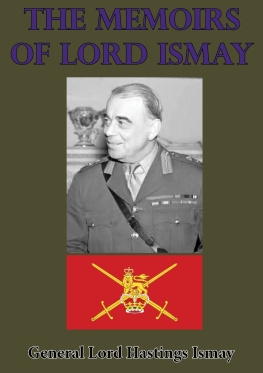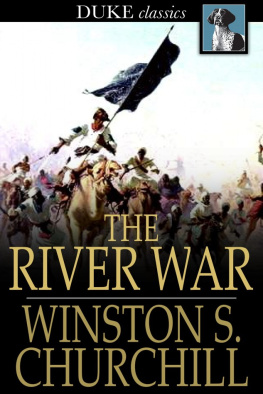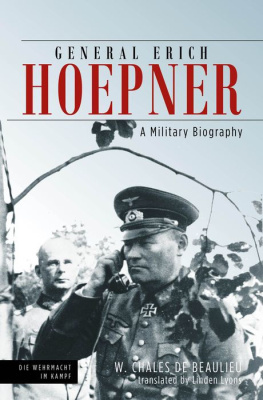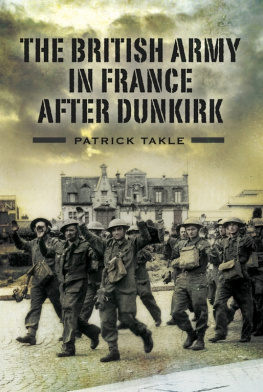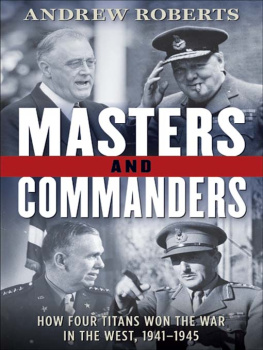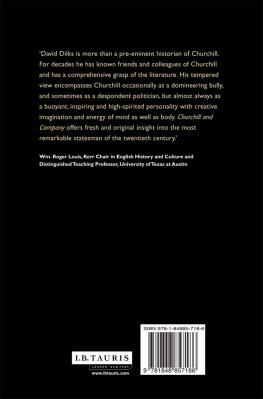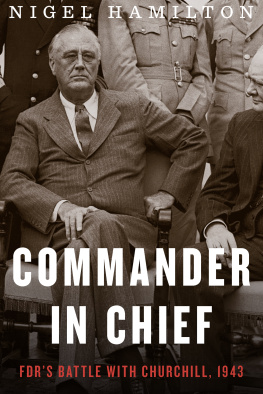DAVID FRASER
ALANBROOKE

This story
of one of the greatest of Gunners
is dedicated to
The Royal Regiment of Artillery
This electronic edition published in 2011 by Bloomsbury Reader
Bloomsbury Reader is a division of Bloomsbury Publishing Plc, 50 Bedford Square, London WC1B 3DP
Copyright David Fraser 1982
All rights reserved
You may not copy, distribute, transmit, reproduce or otherwise make available this
publication (or any part of it) in any form, or by any means (including without limitation
electronic, digital, optical, mechanical, photocopying, printing, recording or otherwise),
without the prior written permission of the publisher. Any person who does any
unauthorised act in relation to this publication may be liable to criminal prosecution
and civil claims for damages
ISBN: 9781448205066
eISBN: 9781448204625
Visit www.bloomsburyreader.com to find out more about our authors and their books
You will find extracts, author interviews, author events and you can sign up for
newsletters to be the first to hear about our latest releases and special offers
Contents
This book could not have been written without the collaboration, in its preparatory stages, of Sir Arthur Bryant, to whose invaluable advice, encouragement and wisdom I am deeply indebted. As I am, too, to his Turn of the Tide and Triumph in the West, many passages from which he has allowed me to include in my biography.
I must equally acknowledge with gratitude all the assistance and confidence extended to me by the family and Trustees of the late Viscount Alanbrooke, and especially Viscount Alanbrooke, the Hon. Mrs Macdonald and Mrs Hill. They have generously made available to me an assembly of documents, recollections and advice which has been invaluable, as well in the case of the Trustees of the Alanbrooke Settlement and the Executors of Lord Alanbrookes Will as granting unlimited access to the Alanbrooke papers themselves, lodged in the Liddell-Hart Centre, Kings College, London. I particularly appreciate the gesture of Lord Alanbrooke in making available to me over 1300 letters between his father and mother, which have greatly illumined the Field-Marshals character.
At the Liddell-Hart Centre my warm thanks are due to successive archivists, most recently Elizabeth Bennett and Patricia Methuen, but previously and very especially Julia Shepherd, who carried out the great work of cataloguing and classification which has enabled the Trustees to agree terms of access to the Alanbrooke papers.
An invaluable part of the Alanbrooke papers is a collection of biographical material, including records of interviews with a number of men and women, some of great distinction, who knew the Field-Marshal well. The collection of this material was entrusted first to Mrs Astley, who had been Lord Ismays secretary during the Second World War, and then to the late Mrs Long; and the devoted and imaginative work done places any biographer enormously in debt.
I am also in debt to those many friends, colleagues, subordinates and associates of Lord Alanbrooke who have honoured me with their impressions, their memories and their views. I hope that, where appropriate, due acknowledgement is sometimes made in the body of the book: but I know well that there are many more who have contributed, with a sentence or a trenchant word, to some of the insights I have tried to attain. To all I extend my gratitude.
From the start the Royal Regiment of Artillery and successive Master Gunners have given me their confidence, encouragement and support. If this book does anything to improve public knowledge of one of the greatest of all Gunners its author will have been amply rewarded. The Regiments assistance has been particularly demonstrated by Major-General Hughes, who has read a number of chapters, supplied information and advice, and done all that man can to prevent the solecisms of one who is not an Artilleryman.
The manuscript has been read in whole or part by Lieutenant-General Sir Ian Jacob and Benita Stoney. Sir Ian has given me authoritative and welcome counsel on the course of the war and Alanbrookes part in it: as an outstandingly distinguished member of the War Cabinet Secretariat, as well as a personal diarist of note he has been uniquely enabled to do so, and has also permitted me to quote from his own diary. Benita Stoney, Lord Alanbrookes granddaughter, has helped me in three irreplaceable ways: she has worked tirelessly on her grandfathers personal correspondence, she has checked typescripts against original documents in the case of the diaries and notes in the Alanbrooke papers, and last but not least she has criticized and commented on drafts with taste, vigour and an exactitude and objectivity of which the subject of the biography would have highly approved. Her contribution has deserved my very sincere gratitude.
The Public Record Office has been able to yield most of its secrets under the thirty-year rule, although, of course, the authors of the Grand Strategy volumes of the History of the Second World War had access to documents regardless to this rule. I am particularly grateful to Group-Captain Arthur Peers for the devoted work he put in on the files at the PRO. Having mentioned the Grand Strategy volumes I cannot neglect to pay my personal tribute to the authors of this splendid work to which I have made incessant reference, and from which I have received, with gratitude, permission to quote.
I am grateful to Viscount Montgomery for permission to quote from his fathers letters and memoranda; to Mr Charles Hammick for permission to quote from the First World War diary of Major P. H. Pilditch and to Lady Nye for permission to quote from the unpublished memoir of her husband by Mr A. Harrison.
I owe a particular debt to the late Dr David Bannerman, and, after his death, to his daughter Lady Gibbon, for making available to me letters from Lord Alanbrooke, as well as vivid recollections and assessments of the Field-Marshal in the field of ornithology.
Many hands have been concerned with the typing of draft after draft of this work. I wish particularly, however, to record my appreciation of the splendid and tireless work put in by Paul Blaber and Penny Lewis at different periods of the books evolution. I pay a particular tribute to Ted Birkett for his enthusiastic work on the maps.
Finally I owe an unpayable debt to my wife who has had to live with the frustrations, setbacks, excitements and alternating fits of depression and enthusiasm which the production of a biography over a period of several years can induce, and has throughout been tolerant, constructive and wise.
Field Marshal Viscount Alanbrooke was a British soldier who probably did as much as any man in uniform to bring victory to the Allies in 1945. He was, as Chief of the Imperial General Staff and Chairman of the Chiefs of Staff Committee, the principal strategic adviser to the British Chiefs of Staff; and the professional head of the British Army. He assumed his duties when the sky seemed dark indeed the German Army had driven the Western Allies from the European Continent; they had invaded Russia six months earlier and seemed to be having an extraordinary run of success there; and the Japanese, having launched from a clear December sky a crippling attack on the American fleet, were in the process of a rapid offensive in South-East Asia. When Alanbrooke gave up his post four and a half years later there had been victory on all fronts for some time.
When extracts from Alanbrookes diaries were first published in two volumes
Next page

